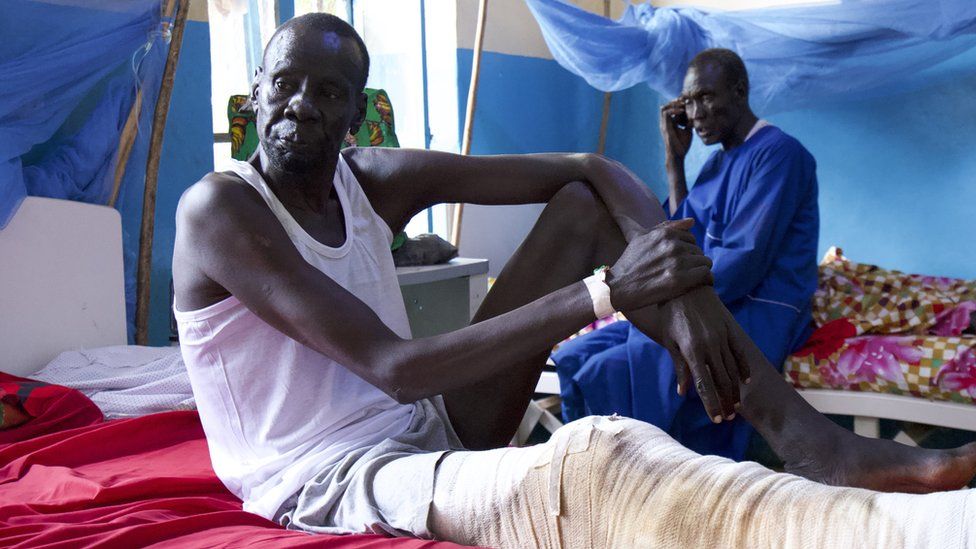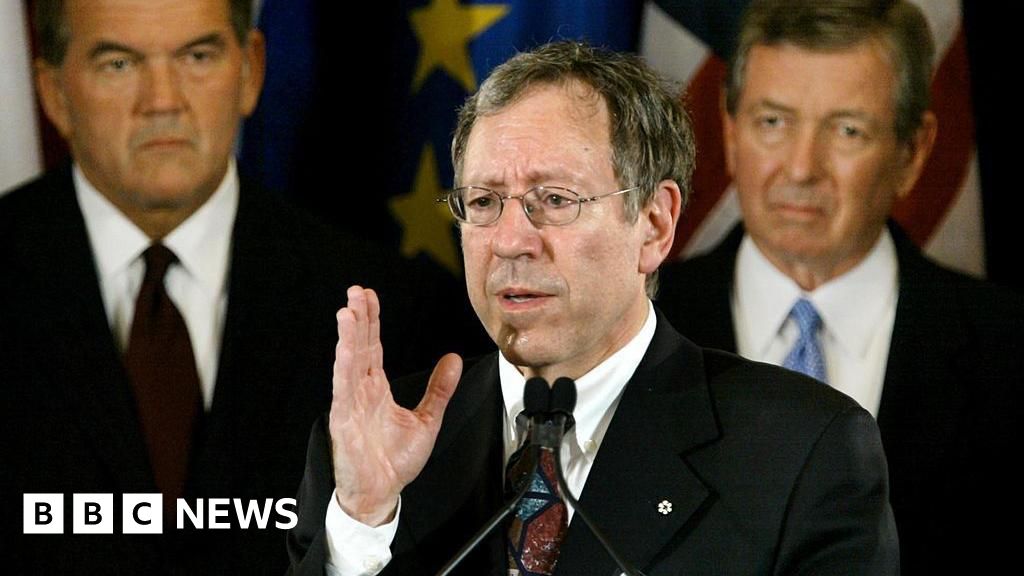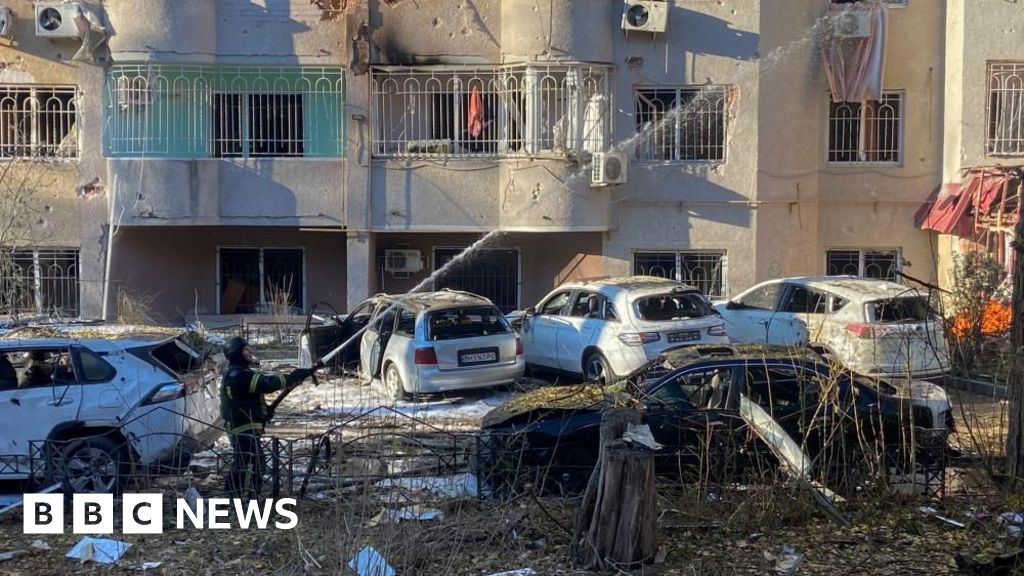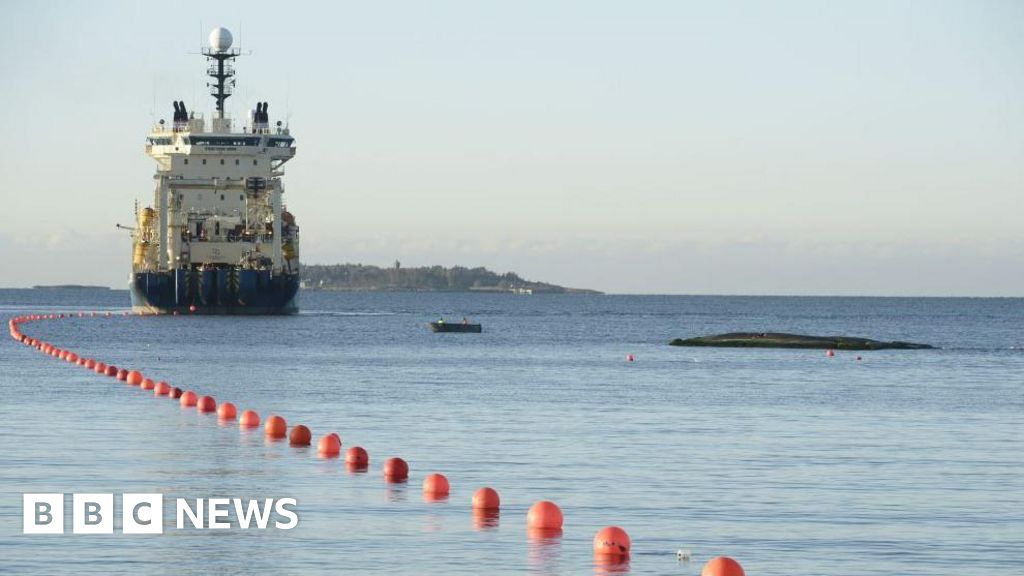ARTICLE AD BOX

The UK government says it will stop giving aid to nine state hospitals in South Sudan from 1 August, raising fears that the move will further cripple a health system that barely functions, as the BBC's Catherine Byaruhanga reports.
At Aweil Civil Hospital, fans are whirling overhead, and patients lie on almost bare beds covering themselves with pieces of traditional cloth, known as kitenge.
With its decaying facade it's hard to imagine that much has changed at the hospital since it was built in 1964.
But over the past four years there has been at least one big development - Dr Dut Pioth became the first-ever South Sudanese surgeon to be posted to the facility.
As he lead the rounds in the surgical ward, Dr Pioth says: "When I was still a medical officer [seeing outpatients at the hospital], there were too many patients who lost their lives because there was no surgeon that could try to help them."
Born in Aweil North in Northern Bahr el Ghazal state, Dr Pioth went to the capital Juba, trained to become a general surgeon, and came back to help his community.
This is still the only hospital in a state with 1.3 million people and Dr Pioth is the only government surgeon hired to carry out emergency and elective operations.
He is now faced with the almost impossible decision of whether to leave because British aid to the hospital will be cut, meaning he loses almost all his income.
Without aid money, Dr Dut Pioth (left) would earn just $5 a month
South Sudan gained its independence from Sudan in 2011 and since 2012, the UK has administered the Health Pooled Fund (HPF) to support small and large state health facilities in the country.
It gets extra funding from other donors like the European Union (EU), Canada, US and Sweden.
Following the UK government's decision in 2020 to cut its aid budget from 0.7% of gross national income to 0.5%, there have been cuts to most programmes around the world.
In South Sudan, HPF, which provides drugs, equipment and contributes to salaries, is cutting support to nine state hospitals by 1 August - including the one in Aweil.
Dr Pioth earns $1,700 (£1,400) each month from HPF while the South Sudanese government pays him just $5 - he will no longer be able to support his wife and children once the cuts come into effect.
"If I am not here, most patients especially the emergency and trauma patients will suffer. I can operate 50 emergencies and 70 elective surgeries so I don't know what will happen when I leave.
"I don't know which position to take," Dr Pioth tells me with a pained look in his eyes.
Aweil Civil Hospital received its last drugs consignment from HPF in June, and Jackson Atak, a patient with an infected leg, says he now has to buy antibiotics from the local market.
South Sudan has struggled to build its health system since it gained independence in 2011
UK cuts to South Sudan's health care system started in April this year. More than 200 smaller health care facilities lost their funding, and the impact is being felt.
I drive two hours north of Aweil town along muddy, bumpy roads towards South Sudan's border with Sudan and arrive at Manyiel Primary Health Care Unit, a small facility meant to act as a first point of call for the community.
The county health director, Joseph Atem, guides me through the dusty office and on to the drugs dispensary at the back. As we open the windows, we can hear the sound of bats.
Because of the withdrawal of the HPF funding, "the shelves are all empty. There are very few antibiotics, antimalaria and oral rehydration salts," says Dr Atem, pointing to the five rows of shelves in front of us.
What would he say to the UK government about its decision to cut funding?
"To bring back the support to these facilities because the community here remains completely vulnerable."
The antenatal clinic seems to be in an even worse condition - the bed with stirrups is dirty and covered with bird faeces.
Dr Atem tells me the Mother and Child Health Worker who used to run the clinic left when he lost his incentive payments from HPF.
Across the road I visit Angelina Akuec a traditional birth attendant. One of her clients, 27-year-old Mary Adua, joins us and together they crouch to enter Ms Akuec's hut.
Angelina Akuec thinks Mary Adua is almost ready to give birth
There she holds a traditional metallic foetal stethoscope to Ms Adua's stomach to listen to the baby's heartbeat and uses her hands to feel the position of the baby.
Neither of them knows how long Ms Adua has been pregnant but the birth attendant thinks she's due soon.
"The clinic is lacking equipment. It is so difficult to get antenatal tests. And also, during labour it is much worse because good hospitals are far from where I stay," Ms Adua tells me.
So, what is South Sudan's government doing about these challenges?
The leaders in the capital are already accused of gross neglect after fighting a five-year civil war which brought the country to its knees.
And now after large-scale corruption, economic mismanagement and global shocks affecting its budget, there is no money.
New Health Minister Yolanda Awel says the country still needs help.
"The government of South Sudan is willing and is moving towards improving the health sector by funding it," Ms Awel tells me from her large office in Juba. "By taking control of most of our health facilities but until that time we need help to get there."
We put the findings of our reporting and the impact we saw of the funding cuts to the UK's Foreign, Commonwealth and Development Office.
A spokesperson told the BBC: "The UK remains one of the top aid donors in South Sudan and this year the UK-backed Health Pooled Fund will support 577 health facilities across the country."
Back at Aweil Civil Hospital, Dr Pioth has not decided whether to stay or look for another job, but he hopes that the UK government will not cut funding.
"These people really need their help, they need their help too much. We're not strong enough to stay alone," he says.

 2 years ago
16
2 years ago
16








 English (US)
English (US)